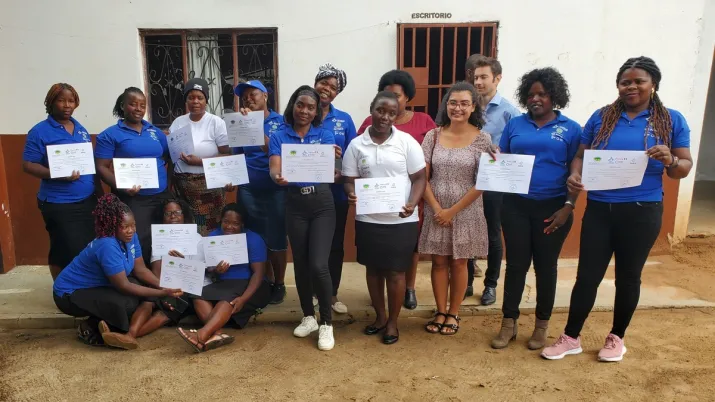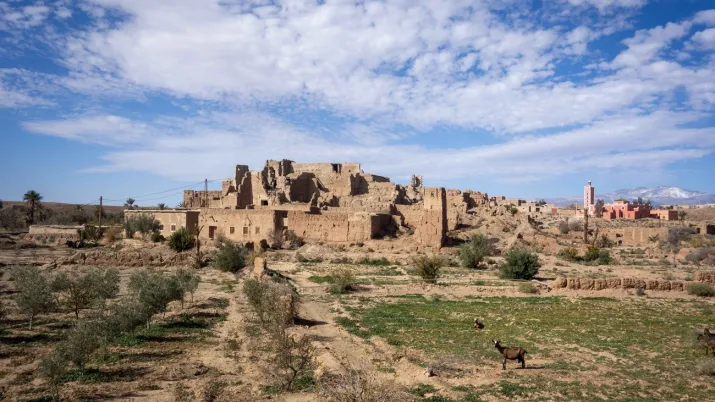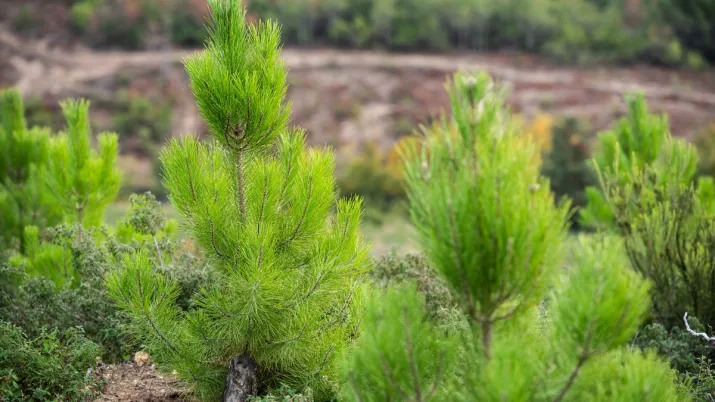Share the page
How can the Commons approach transform Brazil?
Published on

With the COP Climate Conference taking place from November 10 to 21, 2025, in Belém, Brazil, the Commons approach to international solidarity highlights the pioneering strategy being implemented in the country. AFD is supporting and closely monitoring these projects, which place civic engagement at their heart.
"When communities are involved in discussions on project needs and their impact, it can bring about real change and maximize the effects across regions," says Dominique Hautbergue, Director of AFD in Brazil. Commons-based approaches to international solidarity aim to actively involve communities in protecting common goods, whether independently or in partnership with other stakeholders, thus maximizing their impact while better meeting local needs. Citizens must be actively involved in decision-making rather than playing a symbolic role in public debate.
The Commons, widely debated among academic circles, social organizations, and working groups involved in the solidarity economy, sustainability, and technology, are defined as tangible or intangible resources that are neither private nor state-owned, but shared and managed by society as a whole. "In my view, the Commons constitute a dual contract: first, an agreement between people with a shared interest in a place, service, or approach; second, a more institutionalized contract, involving public and private stakeholders," adds Dominique Hautbergue.
When it comes to Brazil, AFD has turned to research in this field, which is essential for understanding the country's real needs. For example, the study entitled Sustainable Digital Commons for Social Justice: The Brazilian Experience with Decidim aims to analyze how marginalized populations take part in collective decision-making. This research is attempting to substantiate certain hypotheses, such as this theory cited by Dominique Hautbergue: "The Commons are often formed as a response to shortcomings in public services, with initiatives on varying scales, primarily affecting historically excluded communities." One of the reasons that mutirões exist–traditional forms of community mobilization that are more common in less developed areas–is to make up for these shortfalls.
English subtitles available
For this reason, AFD also supports initiatives that arise out of local demand, such as the water projects currently underway in rural areas, which aim to transform research into action. In the sanitation sector, it assisted with the development of the Sistema Integrado de Saneamento Rural (Sisar) cooperative, which has been supplying water to Ceará since 1996. Having grown from a grassroots movement into a formal organization through public policy, this initiative goes beyond simply supplying water. "This service, backed by technical, financial, accounting, and social training, has become a driver of community development. It even supports initiatives outside of its core mission, such as groups of women artisans," says Dominique Hautbergue.
Pioneering the Commons approach in Brazil
The Commons approach is already being implemented on the ground in Brazil. For example, native and Quilombola communities (those descended from former slave groups) often work together to manage land, forests, and water resources. These arrangements can be viewed as "natural commons". Projects under the United Nations Framework Convention on Climate Change (UNFCCC), which promote the reduction of CO₂ emissions from deforestation and forest degradation in developing countries (REDD+), and the securing of land rights, also fall under this approach.
Another example: Brazilian states and municipalities are developing "experimental" climate policies and consulting with local communities via various formats (citizen forums, multi-stakeholder alliances), through bodies that constitute institutional spaces for the commons. This approach is also demonstrated by the Brazil Climate and Ecological Transformation Investment Platform (BIP) , which aims to structure financing, coordinate stakeholders, and develop shared financial mechanisms for the ecological transition.
Challenges and future prospects
It is essential to engage in dialogue with beneficiary communities, however, it is important to avoid distortions associated with the rise of popularist rhetoric. The federal platform, Brasil Participativo is a source of inspiration in this regard. "It serves as a forum to ask citizens what they want and what they can do, and offers an example of how to foster connections in a world dominated by fake news," says Dominique Hautbergue.
"We don’t just want to provide money," he adds. "We aim to be a central hub where different strategies converge and come under debate for greater efficiency, inclusion, and better solutions to needs." In this same vein, AFD is planning to establish a steering committee with NGOs, partners, and civil society representatives to inform its strategic vision and develop new forms of governance.
In Brazil, AFD is thus working across the entire chain of development for the Commons: whether supporting research that provides insight into the past, present, and future of shared resources, or implementing concrete actions in the field, to bring about sustainable, integrated, and meaningful transformation for local communities.
See Also
A living laboratory in Türkiye shines a light on the future of French forests
Published on February 5, 2026



